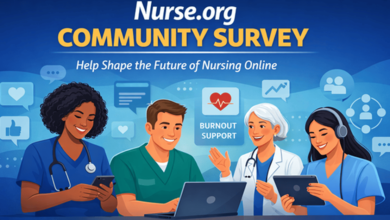Biggest Challenges for Healthcare Workers?

Although the healthcare field is a very rewarding profession, it can be tough. Long shifts, death, and complicated patient care scenarios are some of the biggest challenges for healthcare workers. Saying that the healthcare industry as a whole faces its own range of challenges, including nurse burnout and keeping working conditions up to par. Ultimately, medical workers engage in one of the most demanding lines of work in the USA.
Below, we will explore some major challenges common in the career lives of health workers today.
Healthcare Worker Burnout
Healthcare workers, including nurses’ aides, nurses, and physicians, are prone to greater burnout than individuals working in other industries. This often results from long working hours, staff shortages, and demanding work schedules. A registered nurse (RN) in North Carolina posted on her Instagram account, “burnout can be such a thorn in the flesh.” She goes on to say “It is dreadful, heavy and painful, pushing nurses to the point of losing hope”.
So, how can clinicians personally prevent burnout? Some of the most common challenges for healthcare workers may be frustration, losing compassion, increased tension, lack of sleep, and feelings of anxiety. The Pharmacy Times recommends that such simple interventions as creating time to talk to friends or colleagues and taking a walk during breaks can help mitigate burnout. Other self-care tactics medical workers can take to prevent burnout are finding healthy hobbies outside of work, and communicating with their supervisors when feeling overwhelmed.
Long Working Hours
Do healthcare workers work long hours? As a general rule of thumb – yes. In fact, 12 working hours and overnight shifts are common in the healthcare field. At the end of a normal week, nurses can sometimes work more than 55 hours. According to a WHO study, these long hours directly jeopardize the health of healthcare workers, exposing them to life-threatening conditions such as heart disease. Referring to the challenging times before and during the pandemic, a nurse recounts on Instagram, “Feeling burnt out by nights, long shifts, shift covering during staffing, all came pretty early in my career. Burn out of care staffing is nothing new, even before the events of 2020, nursing staff were leaving the NHS”.
To handle the challenges associated with the long working hours, healthcare workers should strive to find schedules that work best for them. This way, they can strike a more harmonious work/life balance.
Stress
Health workers are prone to daily stress, especially those that work in high-intensity departments. Stressful medical operations can even push medical workers into quitting the field altogether. Health workers have to endure emergencies, deaths, the traumas families go through when they lose their loved ones, as well as juggle challenging relationships with stubborn patients. Without effective stress management, medical workers might actually start to resent their work.
Workforce Shortages
The rising adult population is putting a strain on the health workforce around the world. Today, more patients need medical appointments, specialized care, and emergency attention. This is translating to more work for health workers. Consequently, due to shortages in health workers, longer shifts for the current workforce are becoming more common. And even while more money is usually a result of longer shifts, mental health is still at stake.
According to a report by HealthLeaders Media, “Even after the pandemic, competition for labor is likely to continue as the population ages—a key social risk—and demand for services increases.” The result is an industry that is getting harder and harder for medical workers to navigate.
Death and Dying
What is the hardest thing about working in healthcare? Health workers are frequently exposed to death and dying patients during work hours. These experiences can make them more conscious regarding their own mortality, increasing cases of uneasiness and anxiety. The more frequent deaths that take place during their careers, can make healthcare workers feel stressed, helpless, incompetent, sad, frustrated, and depressed.
Additionally, health workers often have to navigate difficult questions from bereaved families, such as “why did it have to be my father?” Therefore, perhaps one of the biggest struggles for healthcare workers is processing death and dying within the industry.
How Healthcare Workers Are Moving Forward
Despite challenges, numerous evidence-based interventions can bring significant relief to the lives of health workers. With that said, many medical workers are starting to practice self-care, finding hobbies outside the workplace, and opting for fewer round-the-clock shifts. As a result, per diem, or ‘as needed’ nursing, has become a valid option for medical workers seeking a more flexible and less stressful schedule.
Are you a medical professional looking to lighten your load, without sacrificing your pay? Nursa™ is a platform that helps connect qualified clinicians to local hospitals that offer flexible shifts and competitive pay.
Download our app, and cover a shift today.







